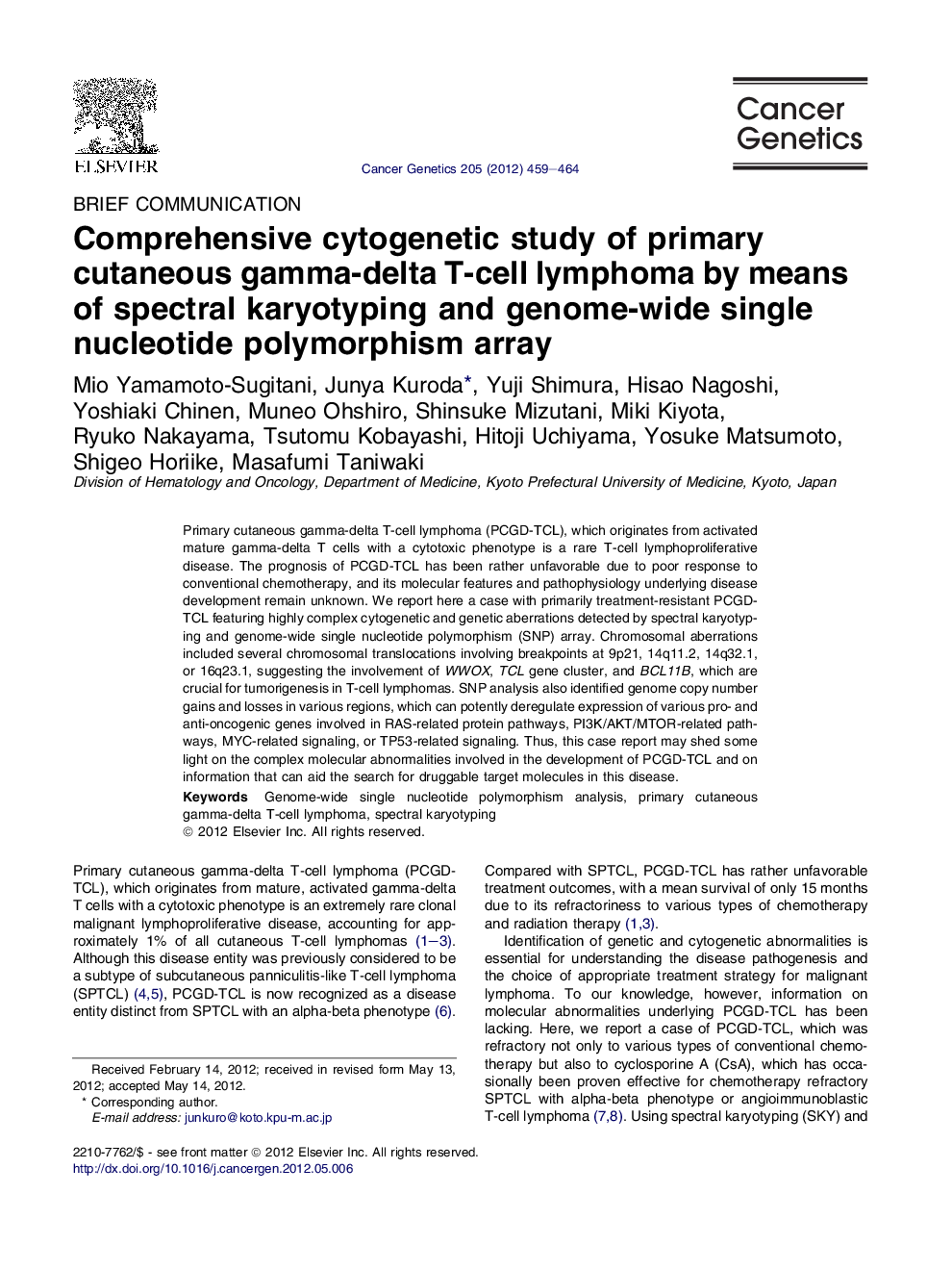| Article ID | Journal | Published Year | Pages | File Type |
|---|---|---|---|---|
| 2110449 | Cancer Genetics | 2012 | 6 Pages |
Primary cutaneous gamma-delta T-cell lymphoma (PCGD-TCL), which originates from activated mature gamma-delta T cells with a cytotoxic phenotype is a rare T-cell lymphoproliferative disease. The prognosis of PCGD-TCL has been rather unfavorable due to poor response to conventional chemotherapy, and its molecular features and pathophysiology underlying disease development remain unknown. We report here a case with primarily treatment-resistant PCGD-TCL featuring highly complex cytogenetic and genetic aberrations detected by spectral karyotyping and genome-wide single nucleotide polymorphism (SNP) array. Chromosomal aberrations included several chromosomal translocations involving breakpoints at 9p21, 14q11.2, 14q32.1, or 16q23.1, suggesting the involvement of WWOX, TCL gene cluster, and BCL11B, which are crucial for tumorigenesis in T-cell lymphomas. SNP analysis also identified genome copy number gains and losses in various regions, which can potently deregulate expression of various pro- and anti-oncogenic genes involved in RAS-related protein pathways, PI3K/AKT/MTOR-related pathways, MYC-related signaling, or TP53-related signaling. Thus, this case report may shed some light on the complex molecular abnormalities involved in the development of PCGD-TCL and on information that can aid the search for druggable target molecules in this disease.
